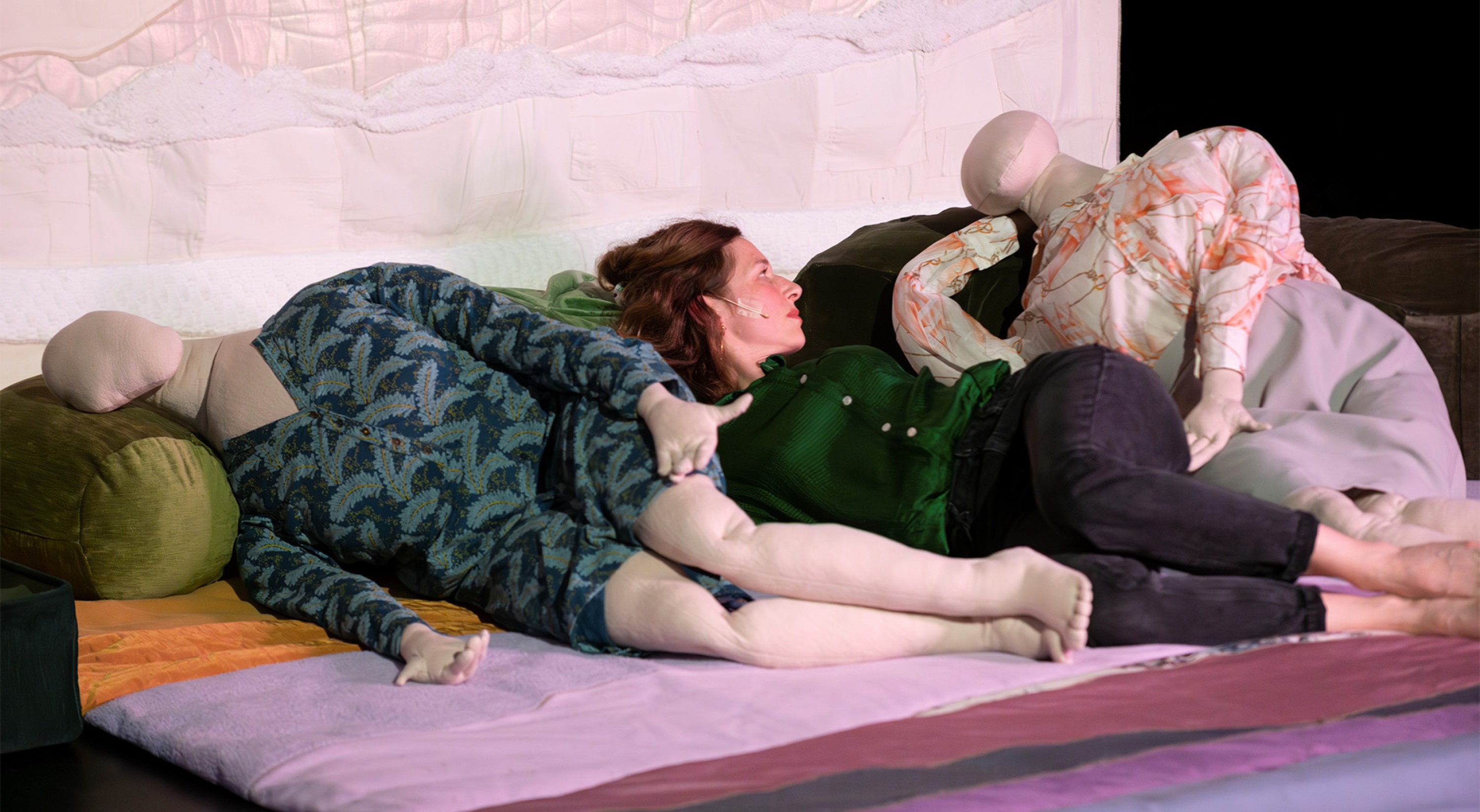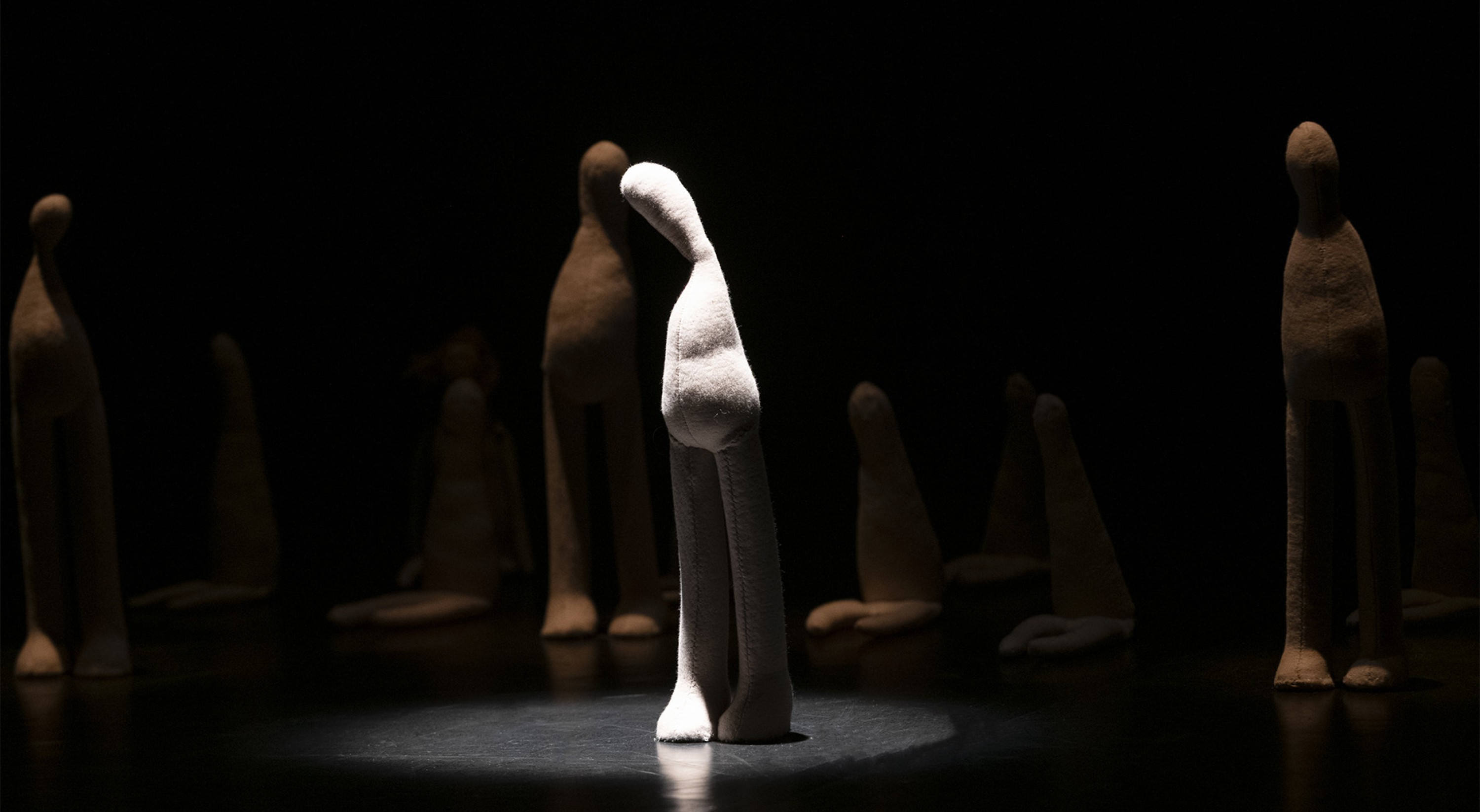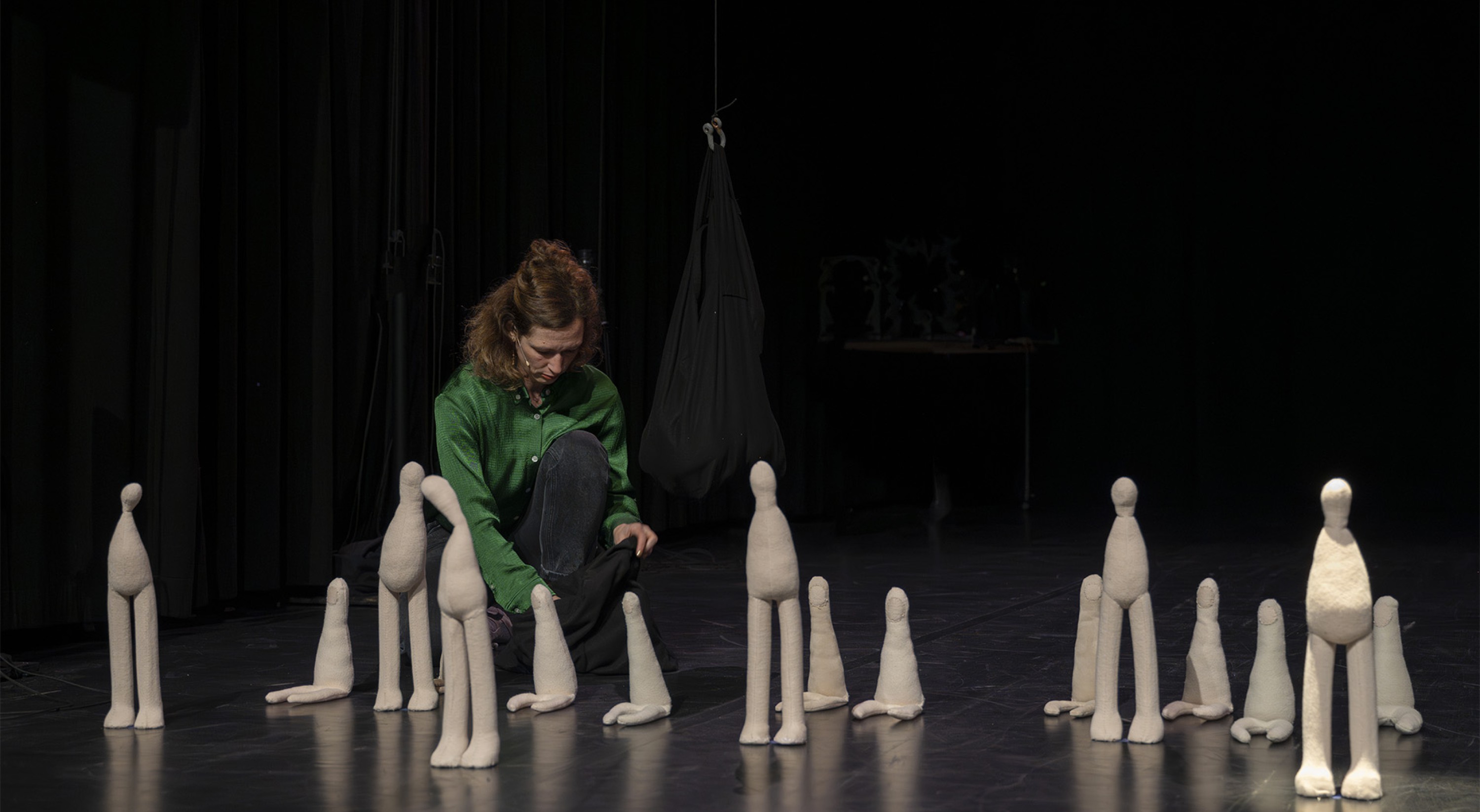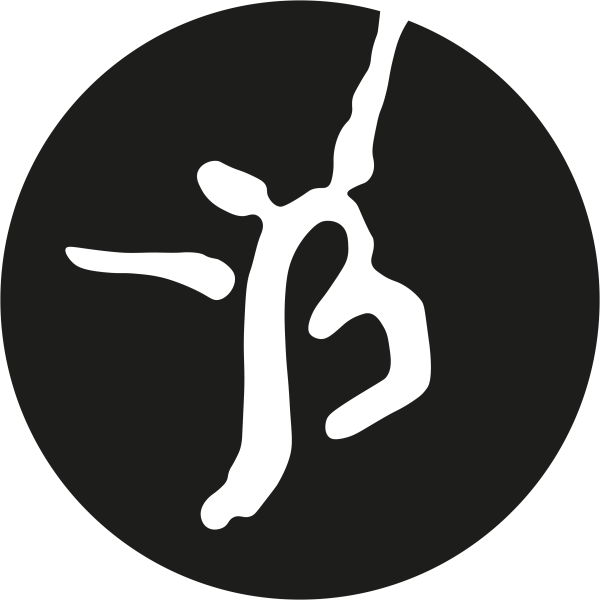Sarah Vanhee
Mémé
novembernov 29 - december – dec 29
Concept, text and performance, Sarah Vanhee
Objetcs and scenography, Toztli Abril de Dios
Sound, Ibelisse Guardia Ferragutti
Outside view, Christine De Smedt
On-screen performance, Leander Polzer Vanhee
With the help of the Vanhee-Deseure family
Dedicated to Margaretha Ghyselen and Denise Desaever
Produced by CAMPO
Coproduced by Kunstenfestivaldesarts (Brussels); Kaaitheater (Brussels); Wiener Festwochen (Vienna); BUDA (Courtrai); HAU - Hebbel am Ufer Berlin; De Grote Post (Oostende); Théâtre de la Bastille (Paris); Perpodium (Antwerp); Festival d'Automne à Paris
Residences BUDA (Courtrai)
The Théâtre de la Bastille and the Festival d'Automne à Paris are co-producers and co-presenters of this performance.
With the support of taxshelter of the Belgian Federal Government via uFund
Sarah Vanhee, a pluridisciplinary artist, summons up the ghosts of her grandmothers, two women whose bodies served the household and the mores of the time. Surrounding herself with shadow theatre, human-sized puppets and the words of children, she instils them with a posthumous joie de vivre.
Sarah Vanhee grew up in western Flanders, an agricultural, border region which has been the recipient of multiple cultural influences, often due to the passage of war through its lands. In a ceremony which feeds off childhood memories and conversations with her parents, she pays homage to Mémé and Oma, two women whose lives revolved around domestic tasks, agricultural labour and multiple childbirths. In the process, she builds up a portrait of a region, an era and her condition as a woman. The onstage environment that she constructs is, on the contrary, one of intimacy and warmth, making it propitious to the sharing of memories, trust, and looking to the future. In this shared space, voice, body and image enable each of us to overcome our individual trauma. In this way, Mémé bridges the gap between the intimate, political, everyday and visions. They are the action tools of this unclassifiable artist whose work is equally at home in the public space as it is on the stage. Each piece weaves sets up poetic links between the audience and the real.
In the same place



